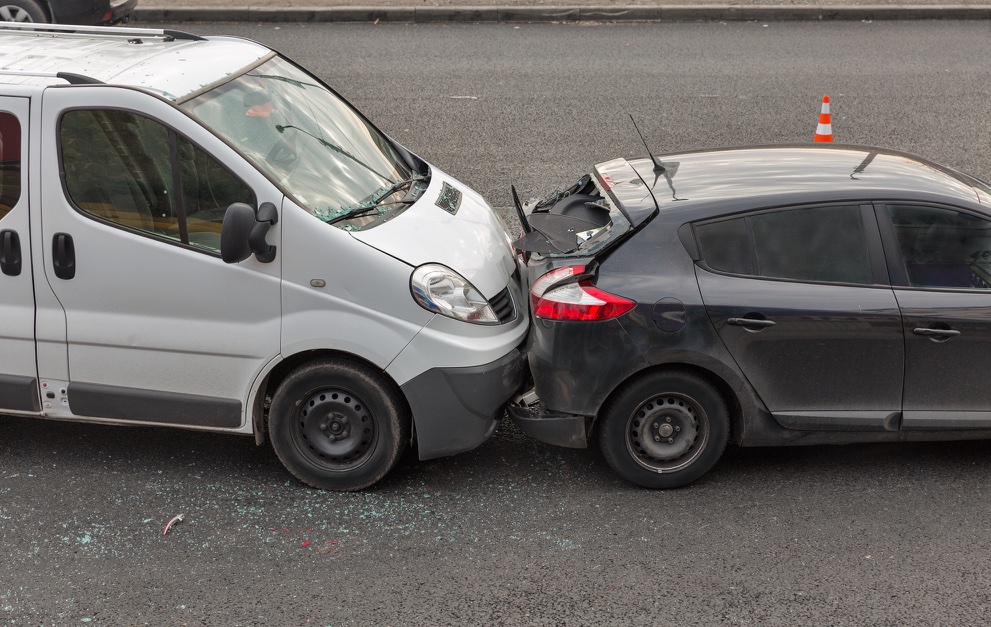Texas roadways are a perilous place for drivers these days. The state of Texas leads the country in fatal truck wrecks. Delivery truck accidents can easily turn into highly complex legal cases involving more than one injured victim and several or more destroyed vehicles.
When big trucks collide with smaller passenger cars, the occupants of the passenger cars typically suffer the most serious injuries and the highest number of fatalities.
Compared to injuries suffered in passenger car accidents, big truck collisions are more likely to cause catastrophic injuries or death. In these types of accidents, the services of an experienced personal injury attorney are absolutely essential.
Trucking Accidents in Texas Are Escalating Across the Board
Texas has never been the safest place to drive, but the situation is rapidly getting worse. Online shopping skyrocketed during the COVID-19 pandemic, and the demand for delivery drivers has skyrocketed as well.
The National Safety Council (NSC) reported that traffic deaths across the board increased significantly in 2020. That was the biggest leap in fatalities in the last 100 years. Safety measures and other driver protections were thrown out the window in the scramble to profit from supply line shortages by any means possible.
Delivery drivers were overwhelmed with transporting food and personal items. They were also tasked with moving medical supplies, prescription drugs and vaccines to their intended locations. There were not enough delivery drivers to meet the demand, and the shortages that so many people experienced were the obvious result.
To deal with the situation, the Federal Motor Carrier Safety Administration (FMCSA) relaxed the hours-of-service regulations. Drivers who were transporting essential items were able to work long hours without taking breaks.
The measures have since been extended, and that has helped to move supplies more quickly. Unfortunately, the relaxed safety restrictions have also set the stage for more trucking accidents.
Amazon Delivery Truck Accidents
A news site called The Information recently reported on 53 Amazon truck wrecks resulting in 14 deaths and 60 catastrophic injuries. Many of the wrecks occurred in the Houston, Dallas-Fort Worth and San Antonio areas.
The actual number of accidents is thought to be higher, but because Amazon has scores of non-employee drivers, the true accident count is unknown. Amazon has a history of trying to shield itself from responsibility for safety issues by contracting with third-party carriers.
Non-employee drivers are nevertheless governed by company policies that promote careless conduct and poor accountability. Amazon expects non-employee drivers to deliver 25 to 30 packages per hour in 110-degree heat.
Drivers claim that only some of the delivery trucks are equipped with air conditioning. When the subcontractors contact Amazon about fixing the problem, they are told to contact the company’s AC repair subcontractors instead.
Fatigued, Overstressed and Overworked Drivers
It’s not hard to imagine how easy it would be for a frustrated, stressed out and overheated Amazon delivery driver to make one small mistake that has disastrous consequences.
The Occupational Safety and Health Administration (OSHA) is still in the process of drafting guidance on how to protect delivery drivers from extreme heat on the job. The lack of guidance at the present time leaves mega-trucking companies with zero liability and zero obligation to provide any relief for overheated drivers.
Commercial truck drivers are subjected to erratic and unpredictable schedules. They work long hours under extreme pressure. If packages aren’t delivered on time, the consequences for a driver can be serious.
There is little or no time to relax, recharge and rest between shifts. Drivers can easily develop chronic fatigue. This condition predisposes a driver to accidents. Symptoms include a loss of concentration, reduced coordination and nodding off at the wheel.
In the rush to get deliveries to their destinations on time, drivers often disregard safety limits set by the federal government to keep chronic fatigue at bay. The condition can cause impairment similar to that caused by drugs or alcohol. Chronically fatigued drivers put themselves and everyone else at risk.
Unfortunately, many drivers are forced to choose between insane and overtaxing delivery demands, working under conditions of extreme stress and living with chronic fatigue or staying within the safety limits, practicing sensible self-care and probably losing their jobs.
Inexperienced and Poorly Trained Drivers
The explosion in online sales during the COVID-19 pandemic led retailers, restaurants and other purveyors of goods to lower the standards for delivery people they employed. They hired drivers with no experience and sent them on their way with minimal, if any, training.
U.S. trucking companies had already been dealing with a driver shortage for 15 years when the COVID-19 pandemic broke out. Carriers were forced to hire many inexperienced drivers to meet the heightened and urgent demand for goods.
Although drivers must have a commercial drivers license (CDL) to operate commercial trucks, their expertise and experience on the road may be seriously lacking. Inexperienced drivers are less likely to perceive hazards and more likely to commit errors that result in serious, multi-vehicle wrecks.
Employer Negligence
Even experienced and careful drivers can find themselves involved in collisions if their employers are negligent. If the driver of a company-owned truck causes an accident due to inexperience, improper or inadequate training, the employer may be held responsible for any damages that result.
If a delivery driver gets heat stroke on the job, passes out at the wheel and causes an accident, the employer may be liable for the damages because they failed to equip the truck with air conditioning.
Many delivery drivers use company trucks. They trust the trucking company to ensure the safety of those vehicles. If a delivery truck malfunctions because of poor maintenance and causes an accident, the employer may be liable for the damages.
The trucking company is responsible for keeping delivery trucks in top-notch condition. Big trucks need regular inspections and maintenance. The most common mechanical problems are faulty brakes and defective tires. Mechanical problems should be corrected before the truck returns to the road.
Defective components can also be to blame. Parts can fail and lead to a loss of control. In accidents caused by faulty components, the manufacturer of the part would be liable.
Unfortunately, employer negligence and negligence on the part of the manufacturer can be difficult to prove. Meanwhile, the victims of these accidents are left to fend for themselves while the matter is sorted out.
Drivers Under the Influence
Although many delivery companies perform random drug testing on their drivers, other drivers are basically on their own. This is especially true for drivers who work for Amazon’s third-party subcontractors.
Operating a motor vehicle while impaired or intoxicated is dangerous enough in a passenger vehicle. When a delivery truck driver is under the influence, the risk of a wreck is much greater, and the severity of the damages is greater, too.
Over-the-counter medications (OTC) are a contributing factor in numerous delivery truck accidents. Conversely, street drugs are a contributing factor only two percent of the time.
Unpredictable Driving
Delivery truck drivers are masters of multitasking. While maneuvering through sometimes heavy, stop-and-go traffic they are simultaneously looking for an address, monitoring their GPS and texting back and forth with the trucking company dispatcher.
These drivers can engage in sudden stops, last-minute turns, aggressive lane changes and other tactics that make accidents more likely and put any drivers in their blind spots at risk.
Inattentive Driving
According to a large study conducted by the Federal Motor Carrier Safety Administration (FMCSA) and the National Highway Traffic Safety Administration (NHTSA), driver inattention is responsible for almost 10% of all truck crashes.
The most common inattentive behaviors were texting, eating, making or receiving phone calls and using the GPS. Drivers in stopped delivery vans were a hazard for other drivers if the inattentive driver opened the door of the truck into oncoming traffic due to a blind spot.
Aggressive Driving
It doesn’t take much to ruffle the feathers of a harried, frustrated and impatient delivery truck driver who is trying to make deliveries on a very tight schedule. Drivers tend to behave aggressively when frustrated by other drivers, stuck in traffic or feeling pressured by impossible delivery deadlines.
Aggressive drivers can make sudden lane changes, weave in and out of traffic, speed, tailgate, ignore traffic signs and cut off other drivers. While a high-stress job is no excuse for bad behavior, it’s best to give these truckers a wide berth.
Unreasonable Demands
A percentage of delivery truck accidents involved drivers who reported being pressured by their employers to work 12-hour days and make more deliveries. Some drivers reported that their carriers were offering them financial incentives to push the federal safety limits as far as possible.
High-speed Driving
For many of today’s delivery drivers and trucking companies, life has become a mad scramble for the money. The faster the trucks go, the more money everyone makes. As a result, there are many heavy trucks on the road, and they’re going way too fast.
A speeding delivery truck is more dangerous than a speeding passenger car. Heavy trucks traveling at high speed cannot just slam on the brakes if they have to stop. Those vehicles must slow down gradually in order to stop safely. The inability to safely stop in traffic can easily trigger a multi-vehicle pile-up.
Truck Driver Negligence
The Legal Information Institute (LII) states that “negligence involves a failure to behave with a level of reasonable care that others would have exercised under similar circumstances.” Negligence includes willful acts and acts of omission such as driver error.
Driver error includes driving while fatigued or under the influence, driving too fast for current conditions, failing to brake in time because of traffic or congestion and failing to correctly assess roadway hazards. It also covers tailgating, illegal maneuvers and inadequate surveillance.
Drivers are responsible for taking safety precautions on the road to protect themselves and others. If they fail to do that, serious injuries or fatalities could result. Even small errors in recognition, performance and decision can have disastrous consequences.
Bad Roads
A FMCSA study revealed that almost 25% of large truck wrecks involved drivers who were unfamiliar with the road, encountered obstacles, were traveling with limited visibility or were trying to navigate poor roadway infrastructure.
If a large truck is traveling too fast while experiencing those conditions, they may be unable to stop to avoid a collision.
Oil and Gas Industry Trucks
.
Oil and gas industry trucks make the Texas roadways even more perilous. Commercial trucks can spill flammable liquid that ignites, explodes or starts fires. Slippery oil spills can cause other drivers to lose control of their vehicles.
Spills involving corrosive or toxic chemicals or hazardous waste are harmful to all living things. These incidents can result in massive pileups and burn injuries.
Most of the spills are caused by human error. The FMCSA has issued clear safety precautions, but because drivers ignore the rules, numerous collisions, injuries, and fatalities occur in Texas every year.
Poorly Loaded Cargo
With the rush to deliver more goods on a tighter schedule, cargo may be loaded hastily and improperly. Heavy loads must be balanced and secured in order to be safely transported.
If a truck is overloaded with cargo that is improperly secured or exceeds safety regulations, it can easily become unbalanced and tip over, setting off a series of accidents in its wake. Exposed cargo that’s poorly secured can fall off the truck, strike other drivers and cause a chain reaction of injuries and fatalities.
At PM Law Firm, we defend the victims of delivery truck accidents. Under Texas law, our clients are entitled to maximum compensation for any and all injuries caused by delivery trucks. Call us now to get started.

